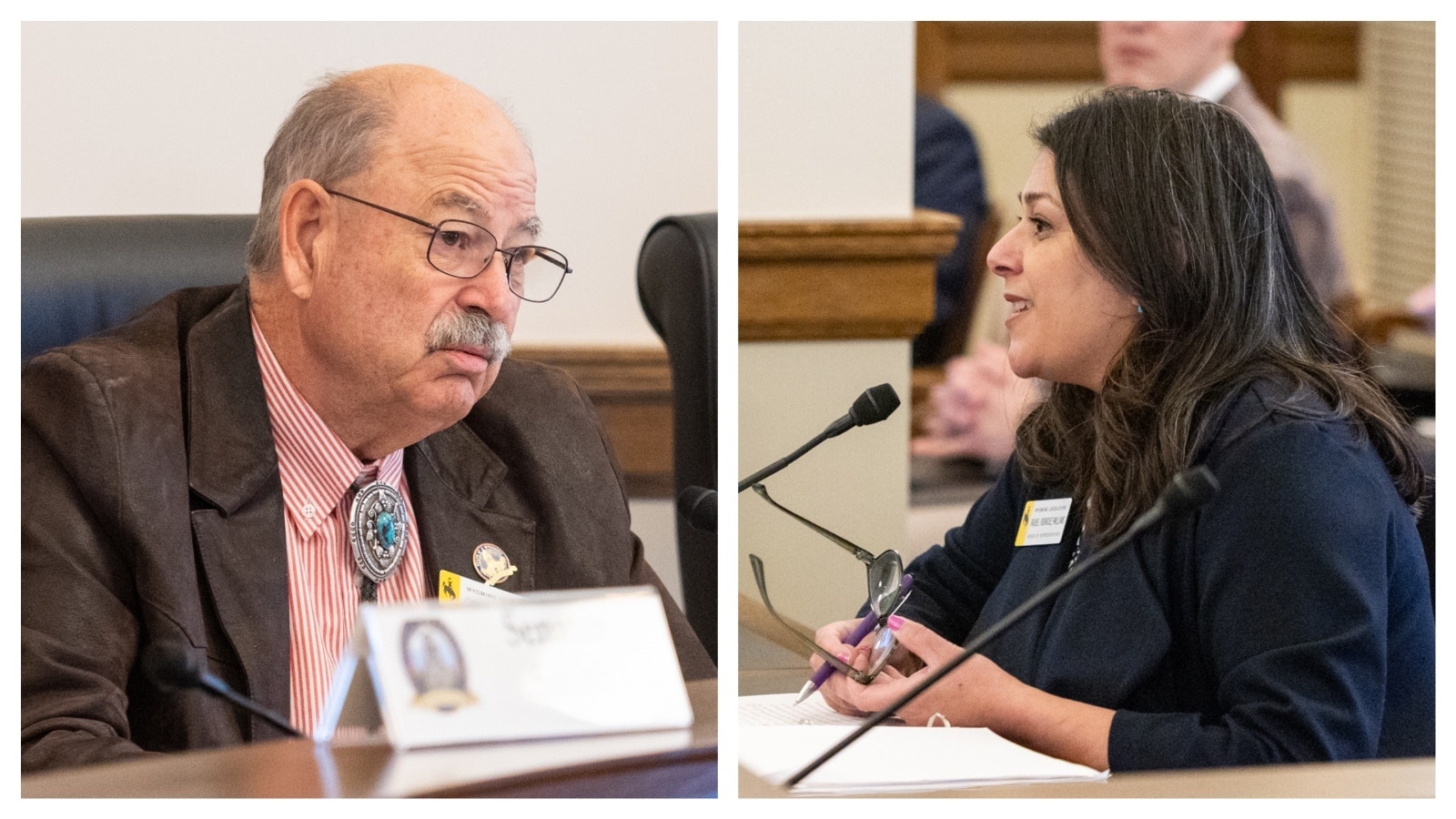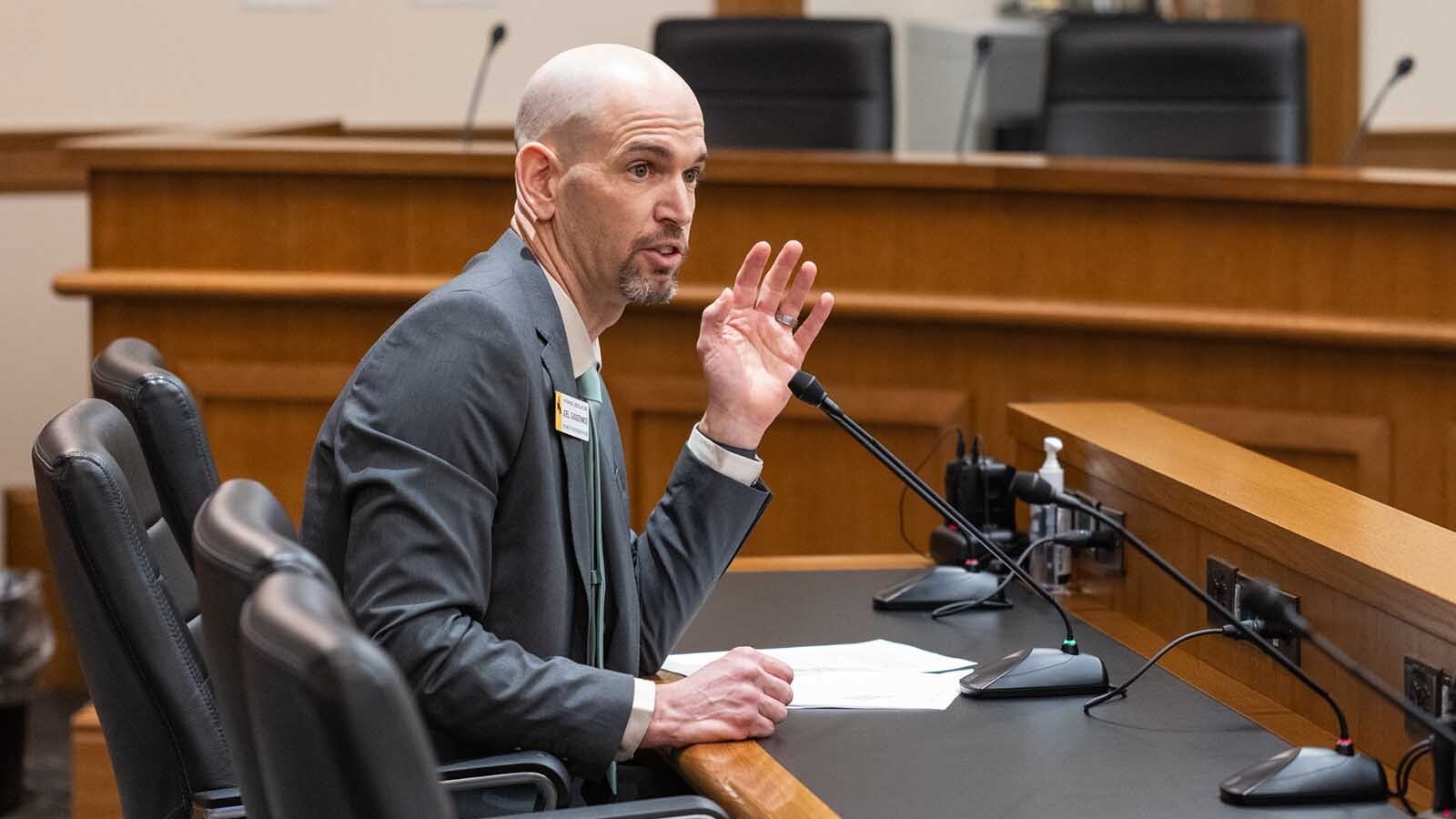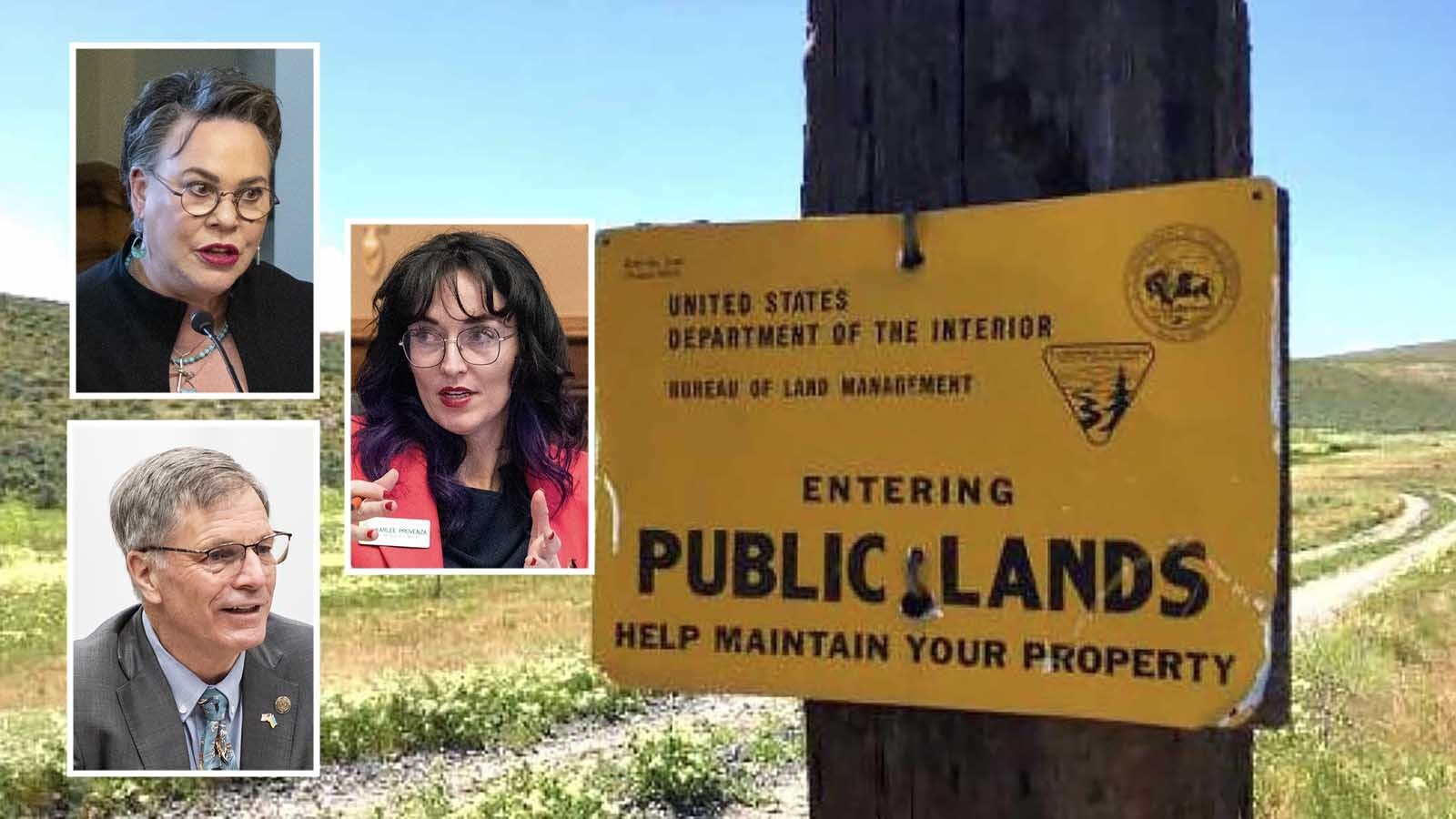By Leo Wolfson, State Politics Reporter
Leo@Cowboystatedaily.com
When Wyoming voters go to the polls next week, they’ll decide if their local municipalities can spend tax money to invest in stocks and equities.
Voters statewide will be asked whether to support or deny Amendment A, a referendum that if passed, would give cities and counties the go-ahead to invest in higher-risk stocks and equities. This permission not only would require support from a majority of voters, but also an amendment to the Wyoming Constitution, as higher-risk investing is now prohibited.
Also Needs Legislature To Approve
Any amendment to the Constitution requires a two-thirds supermajority vote from the Wyoming Legislature to be enacted. Within this future legislation, a regulatory framework would be developed, where it would be determined if the investments would be managed through the state or by the individually participating cities and counties.
It is a complicated proposition with clear rewards and potentially negative repercussions. Those in favor of it say municipalities can get more return on their investments by having more control over them, while others argue riskier options shouldn’t be on the table when tax money is involved.
“I definitely support Amendment A,” said Cheyenne Mayor Patrick Collins. “It gives cities and towns that have monies in reserve to avoid having to go to the voters on fifth- and sixth-penny taxes by investing in low-rate investments.”
Wyoming Treasurer Curt Meier, the Wyoming Association of Municipalities and Wyoming County Commissioners Association all support Amendment A, while the Wyoming County Treasurer’s Association opposes it.
“The volatility is real and difficult to anticipate,” said Joe Schell, Converse County treasurer.
Currently, counties and municipalities can only invest in low-yield, high-security fixed-income investments like certificates of deposit, federal agency bonds and U.S. Treasuries. State government, however, is not held to this same standard and is allowed to invest in equities such as stock in corporations.

Risk-Reward
Jerimiah Rieman, executive director of the Wyoming County Commissions Association, said a successful performance in the stock market could allow local governments to forgo having to levy new taxes.
“You must be able to see a sufficient amount of returns to cover that cost, but we do see the potential,” he said.
Rieman mentioned the sale of a $207 million hospital in Natrona County that the county could leverage for massive gains and funding for future projects, potentially without ever having to spend a penny, if the amendment and corresponding legislation were to pass.
In a letter posted on Facebook, the Wyoming County Treasurer’s Association argues that passing Amendment A would sacrifice financial safety for only potential gains.
“The volatility of the market means that losses are inevitable, and we believe any loss of the funds entrusted to us is unacceptable,” reads the letter from Laramie County Treasurer Trudy Eisele.
Already Investing
Local governments already invest through the state in the WYO-STAR I short-term investment pool and WYO-STAR II, a pool of corporate bonds. Neither fund has a guaranteed rate of return, and participants expose their investments to market losses as well as gains.
As of June 30, there were 193 active WYO-STAR I users and 37 active WYO-STAR II users in the state.
Patrick Fleming, chief investment officer for the Wyoming State Treasurer’s Office, said the WYO-STAR II fund is down 4.95% year-to-date. In July, the account posted a 5% loss, costing Converse County around $50,000 and the city of Casper $303,376. Both entities have since recovered those losses.
The money in these accounts is guaranteed in the long term, unlike equity stocks.
“Bonds are a very, very different animal than stocks,” Fleming said. “But, if your point being is many of these municipalities could lose money – absolutely. The probability of having a big loss is very, very small.”
Timing is key
Because of rapidly rising interest rates and potential for a recession in the near future, it’s a less-than-ideal time to be investing in the stock market for the immediate future. Fleming said he hasn’t seen another time since at least the early 1980s that both equities and bonds were declining at the same time.
But Meier said that because of the length of time any legislation driven from Amendment A would take effect, it’s the perfect time for the issue to be considered by voters.
“I think it’s pretty good timing,” he said. “By the time we go through the process, enact safeguards … we’ll probably be in the middle of the recession. Hopefully the worst of the storm will be short.”
Only A Few Could Make It Work
The state of Wyoming invests about 16% to 18% of the Permanent Mineral Trust Fund in stocks and equities, which has posted a roughly 18% loss since the start of the year. Schell said the state can afford to take this approach for higher yields because it is managing a permanent fund.
Funds that counties and municipalities would use for investing in equities would likely come from reserves, Rieman said. He and Meier said only a small handful of Wyoming counties would have enough money in reserves to take advantage of this opportunity if passed, which Meier sees as a $5 million barrier to entry.
Still, Rieman said he has seen nearly unanimous support from every county he has spoken with on the issue because of the flexibility it would present for towns and counties to invest if they want.
“They look at it as an option,” Rieman said. “If they are in the position to do it, they should be able to take advantage of it.”
Legislature’s Role
The market value of Wyoming’s investment portfolio has generally grown in a positive direction over the last decade, increasing by about $10 billion since 2011. Since July, the market value of Wyoming’s sovereign wealth fund brought in $77 million worth of income, $36 million garnered in August alone.
If Amendment A passes Nov. 8, it will be up to the Wyoming Legislature to determine whether state or local government agencies are responsible for managing their investment funds.
Schell said this scenario opens a whole new can of worms.
“We’ve heard both opponents and proponents of that,” he said. “We’ve heard local investors, local people who invest in the stock market, wonder why they should be set out of that process. Why should the counties’ money be given to the state so that the state investment experts can get the points and the fee from trading it?”
Schell said choosing to invest in a local oil company could create an awkward scenario if it chose to leave the community that invested in it.
“Not only do you have an economic impact, you may also have an investment where the stock goes down,” he said.
Potential For Local Conflicts
He also said there could be issues with investing in a business that conflicts with the needs of individual local taxpayers.
The state outsources management of the WYO-STAR funds to investment firm JP Morgan. Outsourcing wealth management to a third party, Schell said, comes with the risk of conflicting political values between Wyoming shareholders and the wealth management company. For instance, investing in companies that have committed to divesting from oil and gas stocks.
“Should there be some guidelines on that, or should the counties be able to have some say in what stocks they’re supporting or what stocks they own?” Schell questioned. “In the end, the taxpayers are being asked to support an idea while not knowing what that final piece is going to look like.”
Chance of Enactment
Rieman stressed that even if the amendment passes, it will have an uphill battle to get the two-thirds super majority needed by the Legislature. He does not anticipate any legislation on the matter for one or two years.
“This will encourage us to be very thoughtful when we devise a plan for how this would be done,” he said. “We need to devise a system in which funding is best protected.”
Meier agreed, and said a strict framework would be put in place to ensure funds would be invested in as diversified and conservative manner as possible.
Wyoming’s voters have historically been amenable to expanding governmental powers to invest.
Amendment C was placed on the statewide ballot in Wyoming by the Legislature in 1996. It was approved by 63% of voters. The amendment allowed state money to be invested in corporate stocks under conditions prescribed by the Legislature.
In 2016, Wyoming voters approved Constitutional Amendment A, which allowed the Legislature to invest additional state money in the stock market.
Prior to this amendment, the state Legislature could only invest money designated as permanent funds and into the public employee retirement system with stocks.





